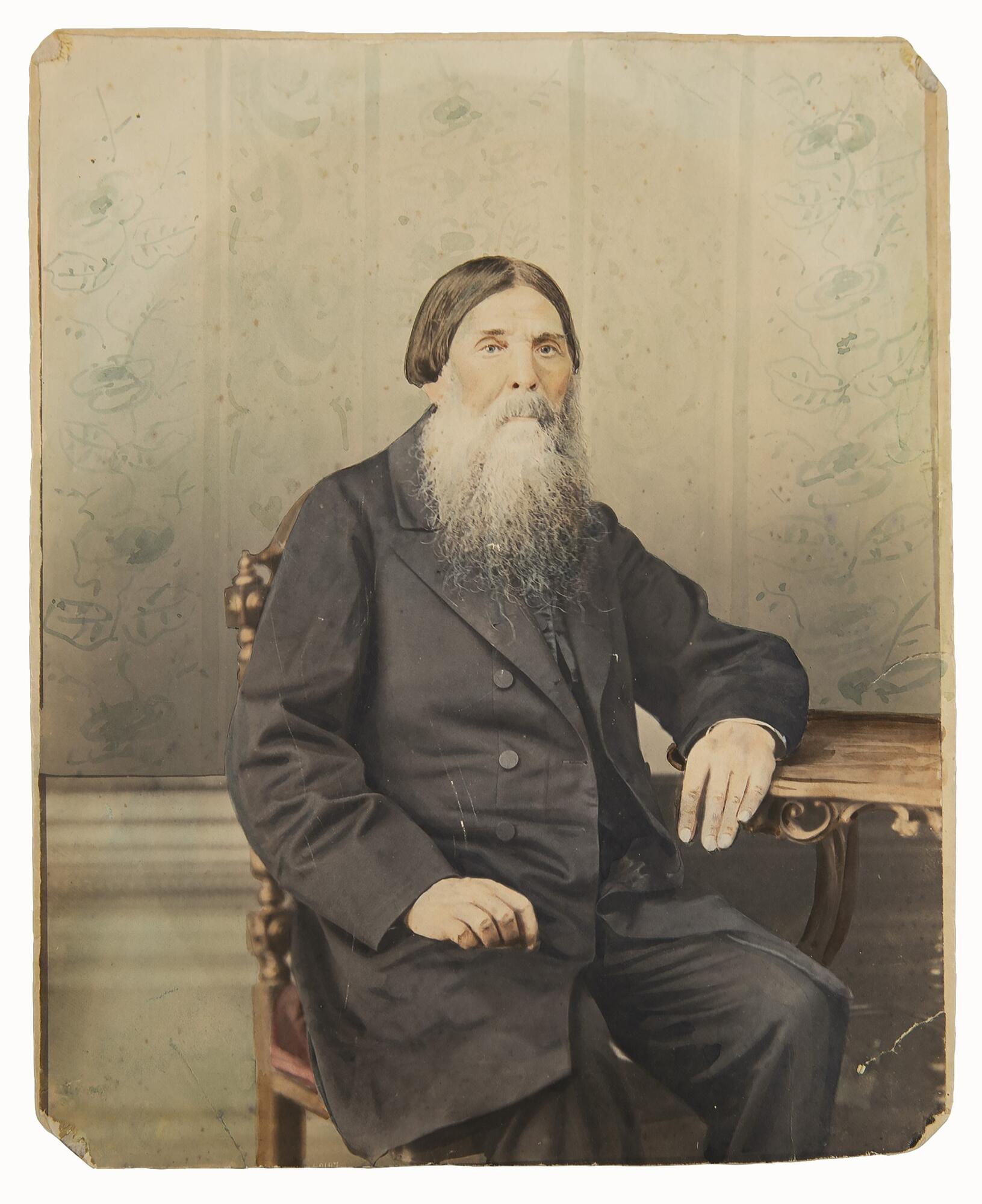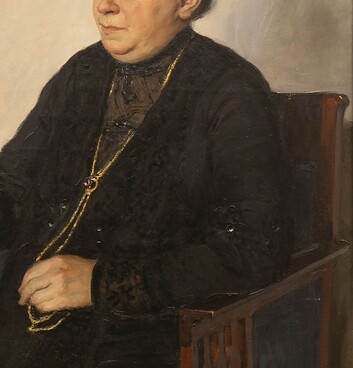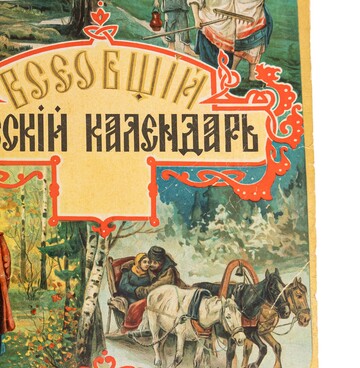The lithograph made in the 1870s–1880s depicts a man who played an important role in the life of Ivan Dmitrievich Sytin — the merchant Pyotr Nikolaevich Sharapov.
On September 13, 1866, Ivan Sytin arrived in Moscow with a letter of recommendation addressed to Sharapov. The latter kept several shops selling fur products and books at the Ilyinsky Gate. At first, it was planned to grant Ivan a position in a fur store, but all the vacancies were filled there, and he began to work in a bookstore. There they sold lubok books but carried hardly over 150 titles. There was a small lithography attached to the shop, and some of the lubok prints were made there. A patriarchal merchant and well-known publisher of lubok paintings, songbooks and dream books, Sharapov became the first teacher, and then the patron of Ivan Dmitrievich Sytin.
“I remember him as my first friend, the guardian of my childhood and the mentor of my youth… — Ivan Dmitrievich wrote in his memoirs. — I was 14 years old. I was tall and physically healthy. I was able to do all the work. All the most menial work around the house was on me: in the evening I had to clean boots and galoshes of [Sharapov] and other clerks, wash knives and forks, set the table and serve food for the clerks; and in the morning — bring water from the pool and firewood from the barn, take out the tub and garbage, go to the market for beef, milk and other products. All this was done by me cleanly, accurately and in a timely manner. A year later I became the master’s valet, working for him together with his close servant. One of my duties was to sweep away the dust and clean the silver and gold parts of the revetments and lamps in an old oratory. Here I often listened to the master’s edifying speeches and read church books on his advice. As the business grew, so did my friendship with the owner. Our relationship with him was generally patriarchal, we lived the old-fashioned way. I did not feel like an employee and a clerk but rather a family member or a pupil in the tutor’s house. As a father to his son, Sharapov gave me a fur coat, suits and made other gifts. As the father of his son, he scolded me for my jokes and misdeeds.”
Over time, Sharapov began to allow
Sytin to use a manual lithographic machine. Some years later, Ivan became
responsible for the production and distribution of the merchant’s printed
products. Pyotr Sharapov, an elderly man, willingly sent his energetic clerk on
business trips. For example, Ivan Sytin was in charge of Sharapov’s book
counter at the Nizhny Novgorod Fair. It was there that Ivan Sytin began to
change the merchant’s trade policy, and the turnover significantly increased.


